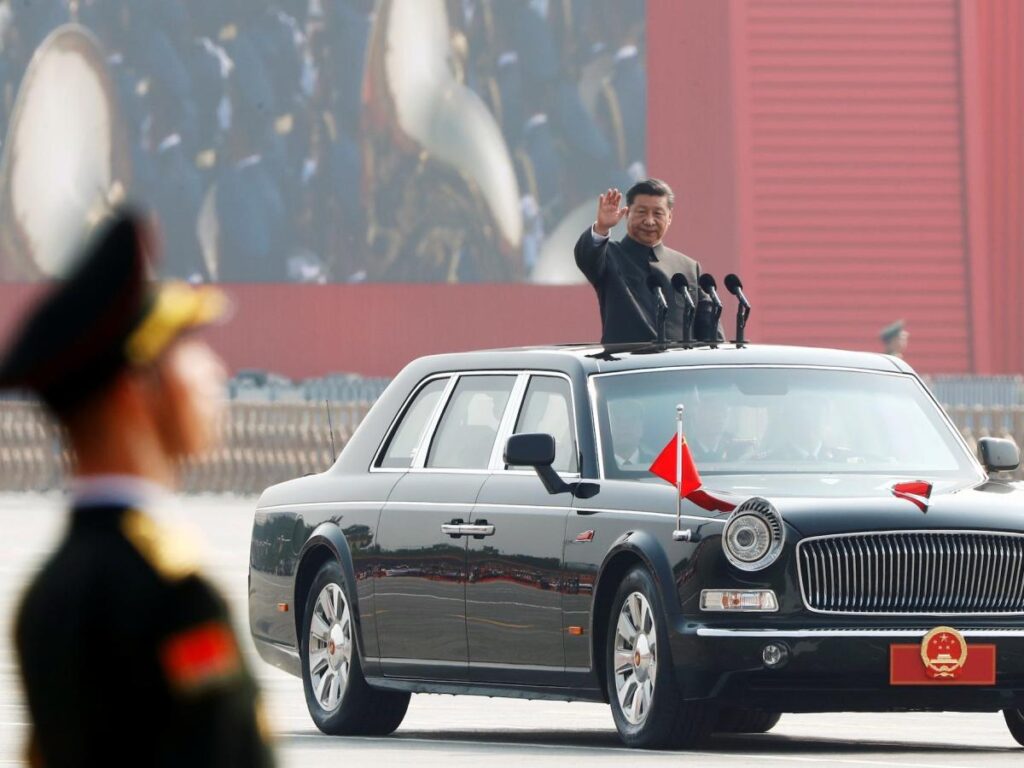-
Chinese President Xi stressed the primacy of the Communist Party over the military in a recent speech.
-
A transcript of his speech could show that Xi remains firmly in control despite the recent purges.
-
Xi has dismissed a number of military leaders and expressed concerns about the military’s readiness.
The Chinese Army is loyal and will faithfully implement the policies set by the Communist Party. Or at least that is what China is trying to convince the world.
In June, the Chinese leader said Xi Jinping reminded the Central Military Commission — the country’s top political-military body — that the military reports to the Communist Party. “Xi stressed the need to maintain the Party’s absolute leadership over the military and build a high-quality cadre team that is loyal, clean, responsible and capable of fulfilling the mission of strengthening the military,” the state-run Xi reported Worldwide times newspaper.
“Xi stressed that political work has always been the lifeblood of the country’s military. The armed forces must always be led by those who are trustworthy and loyal to the Party, and there must be no place for corruption in the military,” according to the Global Times, which often serves as a mouthpiece for China’s hawks.
Xi’s reminder comes after purifications which have resulted in several seniors Officers of the People’s Liberation Army are removed or imprisoned for corruption. But as China attempts to project an image of military might, any sign of a rift between politicians and generals is worrying.
“If I were Xi, I would be concerned about the perception that the massive changes within the PLA have led the outside world, particularly the Western world, to think I am vulnerable and that there is discord between the PLA and the party,” Shanshan Mei, a political scientist at RAND Corp., a U.S. think tank, told Business Insider.
Xi has for years expressed concerns about China’s military, the showpiece of nationalism he has stoked in his unprecedented third term and his most kinetic instrument for Seize Taiwan, confrontation with the US and project Chinese power abroadBut for more than a decade, the PLA has been plagued by corruption scandals as he tried to rein in the corrupt businesses run by many of its officers, bribes paid to top executives for promotions, rocket fuel that turned out to be just water. Recently the commander and the political commissar of the elite PLA Missile Force — which controls nuclear missiles — were replaced by officers from other military branches.
Do Xi’s latest warnings reflect a lack of confidence in his military, or a harbinger of more purges? “We don’t know,” Mei said. “Xi has doubts and he has been explicit for a long time about whether his commanders at all levels are capable of commanding and leading.”
However, Mei pointed out that the article about Xi’s speech in the Global Times, an English-language publication, is different from what appears in the official Chinese-language media. “Xi stresses PLA’s political loyalty at crucial meeting in old revolutionary base,” the Global Times headline read.
But “all official Chinese websites are using the standard story with less sensational headlines,” Mei said. “If anything, this propaganda piece is more focused on projecting an image of unity of the CMC to the outside world than revealing weakness,” she said, referring to the Central Military Commission, which Xi chairs.
For democracies, the idea that a head of state should publicly remind a country’s armed forces to be loyal and obedient seems bizarre. But in many authoritarian countries, the military is both the guarantor of the regime’s survival and the only force that can overthrow it.
In China, as in the former Soviet Union, from which China has learned much, Communist Party keeps a close eye on the military. Political commissars are assigned to military units, ships, and submarines, where they share authority with the regular unit commander, with special supervision of unit morale and political indoctrination.
But reconciling political control with military efficiency is a challenge. When Germany invaded the Soviet Union in 1941, Red Army Commissars served as co-commanders in military units. After repeated disasters caused in part by confusion and paralysis over who was in charge, Stalin finally agreed to subordinate the commissars to the regular commanders.
Xi, the son of a political commissar, believes China’s armed forces need more political motivation. During the June speech, he “analyzed the deep-rooted problems that need to be addressed in military political work, stressing that a root cause of these problems lies in the lack of ideals and convictions,” the Global Times reported.
In addition to military corruption, Xi is also concerned about what he sees as decadence in Chinese society — especially among young people — that is undermining China’s military might. In his view, “younger PLA people don’t want to die for their motherland,” Mei said. “They prefer video games, Korean boy bands and stop quietly.”
Michael Peck is a defense writer whose work has appeared in Forbes, Defense News, Foreign Policy magazine and other publications. He holds an MA in political science from Rutgers Univ. Follow him on Twitter And LinkedIn.
Read the original article at Business insider







